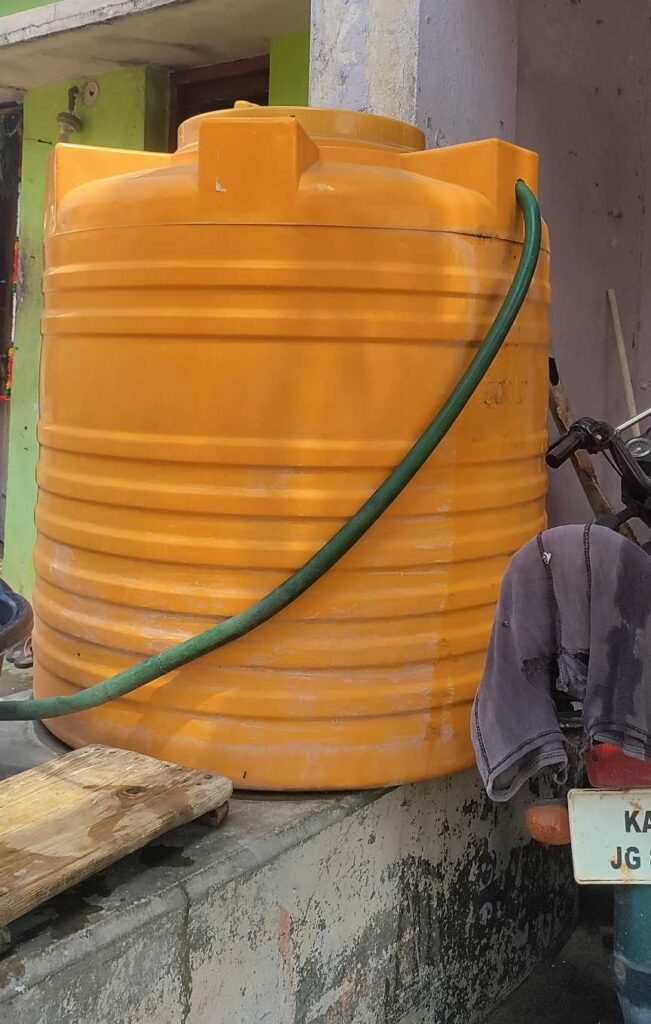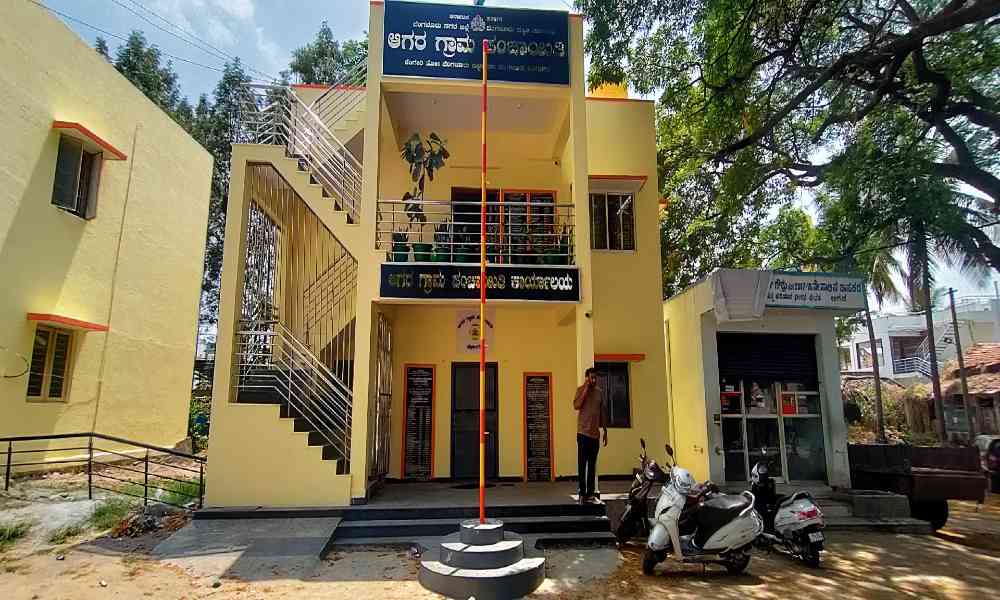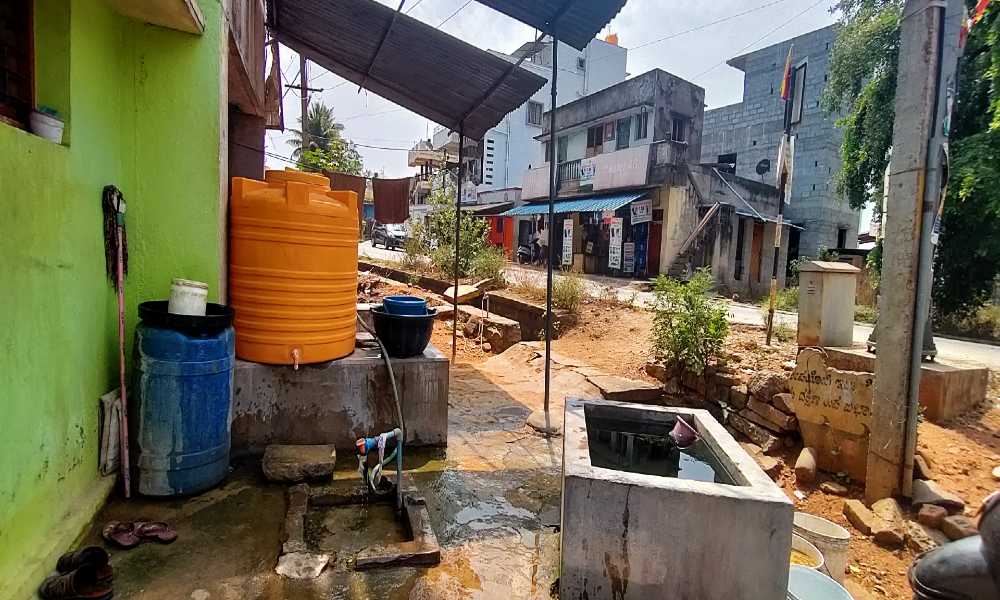Despite Jal Jeevan Mission, people in Agara still wait for water connections in their toilets.
BENGALURU: People in Agara village, in Bengaluru rural, do not have taps in their houses andstore water in plastic containers.Reports show only 67.16 percent of rural Karnataka has direct tap connections.
It was 10:30 a.m., and Nethravathi was filling containers in front of her house with a pipe that was connected to a water outlet outside the house. This is her morning routine. She will refill those containers the next morning or that evening according to her requirement.

Nethravathi is a resident of Agara village who lives in a pucca house, her husband works as a laborer and her daughter is studying in class four. Their toilet is situated behind their house. Nethravathi said, they do not have taps in their bathroom, which is why they fill water in containers directly from a single water connection.
Most of the houses in the village do not have taps in their toilets. People fill water in containers from a single water connection that is provided outside the house to each household and use it for various chores in the kitchen, washroom, and garden.
Asha, who completed her pre-university course, a resident of Agara village said, “We fill water in containers and use that accordingly as we do not have direct water connection in our bathroom.”
According to reports, only 67 percent of rural households in Karnataka have tap connections as of April 25.
According to the Karnataka state budget 2022-23, Rs.6,234 crore has been allotted to 101 Multi village schemes to provide tap connections in the remaining households. In 2019, Karnataka had 24 lakh household tap connections in rural areas. In the past three years, 38 lakh new connections have been added through the mission which adds up to 62 lakh connections.
G. Venkatesh, Data Entry Officer (DEO) in Agara panchayath, said, “We provided them(people) water outlets and under Swach Bharath mission we also built toilets in our village. People cannot expect everything from the government; they should fix taps as per their requirements.”


Lack of tap connection led Nethravathi to store water in her innovative way. Instead of fixing a tap in the toilet, they use a tank to store water for daily chores.
Anusha, Assistant Professor at SJB School of Architecture said, “Taps are a basic need, and lack of taps can lead to typhoid or malaria due to storing water in containers. Storing water in containers is not suggestible as it is unhealthy.”
A research by ScienceDirect states, “Ownership of private taps offers both economic and public health benefits. Private taps are less prone to contamination compared to other improved and non-networked sources.”




